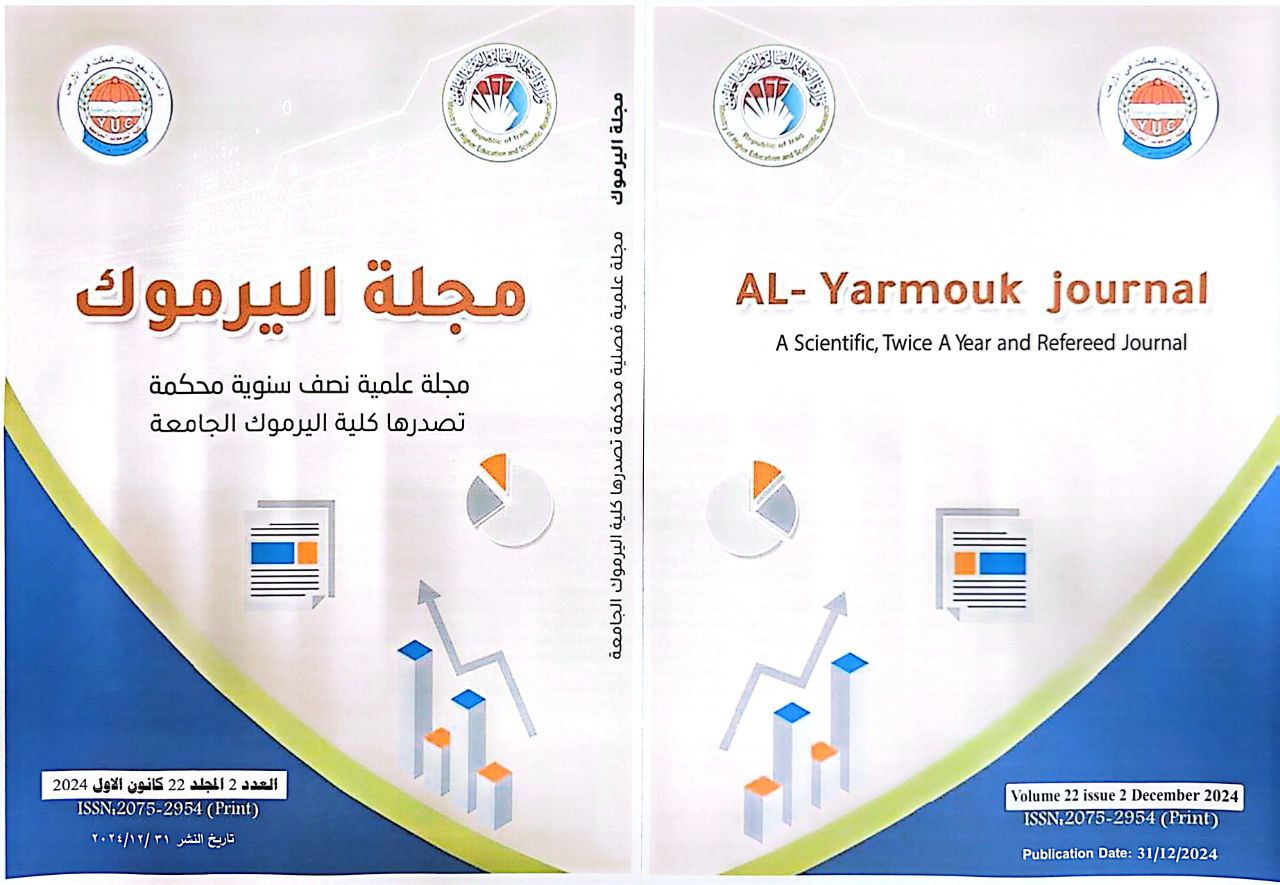African American Woman Representation in Suzan Lori Parks’s “Venus”
صورة المرأة الأمريكية من أصل افريقي في مسرحية فينوس لسوزان لوري باركس
Keywords:
African American Woman, Venus, Twentieth Century Period, Suzan Lori ParksAbstract
The twentieth century period is viewed from many cultural. Economic and political perspectives with deep relevance to literature. There are important events which swept the modern world such as the Bolshevik Revolution of 1917 in Russia, the First World War (1914-1918), the great economic depression of the 1930s in the United States of America, and the Second World War (1939-1945). It is good to mention that other events include the Cold War and the arms race, the predominance of America as a world power, the collapse of the Communist bloc by 1989 and of the Soviet Union in 1991. Al these clashing factors generate new trends in the global community such as the emergence of the women’s movement and rights; the growth of various labour parties throughout Europe, and their struggle on behalf of the working classes. Not forgetting the Civil Rights Movement of the 1950s and 1960s, which is led by Martin Luther King, who is assassinated in 1968. This movement is deeply reflected and expressed in African American literature. These movements and trends have a vivid influence on the distinctions and interests of class, gender, race, nation and religion in modern life. The African American writers are aware of the devastating movements and events that reshape modern literature and express social dilemma of modern life. Thus, modern African American Women playwrights such as Lorraine Hansberry (1930- 1965), Alice Childress (1912-1994), Lynn Nottage (1964- ) , Suzan Lori Parks ( 1963- ) portray woman as a real human being with fortified identity. African American womanhood stereotype is reshaped from the subservient and fragile image into a vital and authentic visage in the modernized world. Suzan Lori Parks in her Venus 1996 tries to bring the past into the present with an up to date vision. Venus is a history play where the heroine Venus is taken as a slave black woman from the south of Africa to work as a show off woman in Europe. She is victimized and deeply exploited due to her black color and gender. The paper tries via the African American criticism theory to assert Venus dilemma as a black woman in a savage world.





